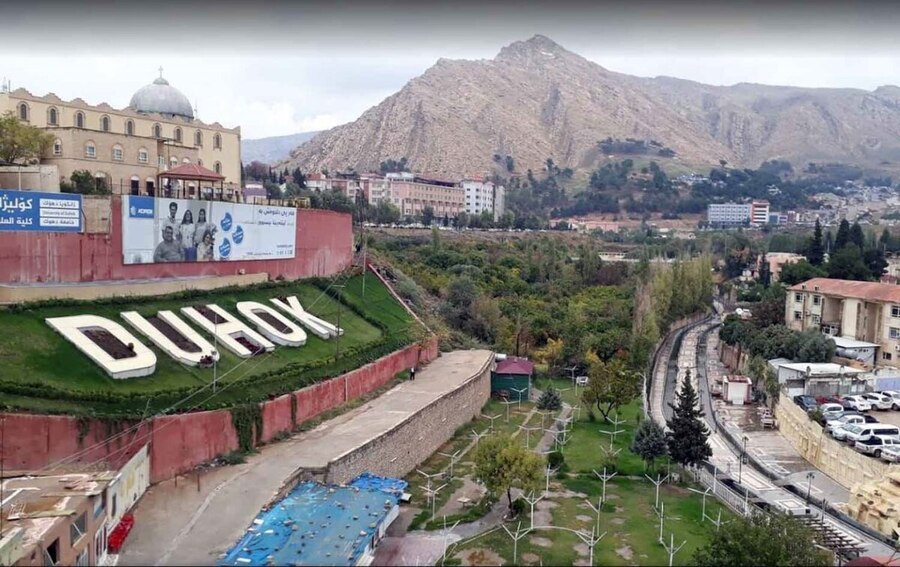The upcoming October 20, 2024, elections for the Kurdistan Parliament are set to bring intense competition to Duhok province, where 25 seats are up for grabs. This election is closely watched by international observers, including the United Nations Assistance Mission for Iraq (UNAMI) and the Iraqi Independent High Election Commission (IHEC), who are ensuring that the process remains transparent and fair. Political dynamics have shifted since the last election, with multiple parties, including the Kurdistan Democratic Party (KDP), Patriotic Union of Kurdistan (PUK), Kurdistan Islamic Union (KIU), and New Generation, all vying for a share of the seats.
Political Landscape in Duhok: The KDP’s Stronghold Faces Challenges
Historically, the KDP has maintained a stronghold in Duhok, a region that has been one of its most secure bases in the Kurdistan region. Of the 25 seats allocated to Duhok, the KDP is expected to retain a majority, continuing its long-standing dominance. In the 2021 Iraqi parliamentary elections, the KDP secured 261,543 votes, representing 66% of the total votes in Duhok. This was a drop from the 354,101 votes the KDP garnered in 2018, but the party remains the frontrunner. Analysts predict that the KDP will likely win between 13 to 15 seats in the upcoming election.
Despite this dominance, the election will be under close scrutiny by international bodies. The administration of IHEC and presence of UNAMI could influence voter behavior, especially as opposition parties attempt to challenge the KDP’s historical stronghold in Duhok.
Opposition Parties Make Strides
Although the KDP is expected to retain its lead, opposition parties such as the Kurdistan Islamic Union (KIU)/Yakgrtu and New Generation are making concerted efforts to increase their influence in Duhok. The KIU, which secured 81,144 votes (20.5% of the total) in the 2021 elections, has steadily gained support since 2018, when it received just 43,525 votes. With its continued appeal among conservative and religious voters, the KIU is projected to win 4 to 6 seats, an improvement from its previous performance.
New Generation, a newer political party, has gained traction, especially among younger voters. In the 2021 elections, New Generation received 19,292 votes, nearly 5% of the total in Duhok. Though its share is still small, the party has positioned itself as an alternative to traditional politics. New Generation could potentially win 1 to 2 seats, marking a notable increase in its support.
The Patriotic Union of Kurdistan (PUK), traditionally weaker in Duhok compared to its strongholds in Sulaimaniya, is expecting modest gains in the upcoming election. In 2021, the PUK secured only 25,040 votes (6.3%) in Duhok, a slight decrease from its 2018 performance. However, political shifts and internal restructuring have placed the PUK in a stronger position this year. Analysts predict that with increased voter turnout and the monitoring efforts of international observers, the PUK could secure 3 to 5 seats, a modest but significant improvement.
Significantly, the race for the 8 women’s seats in Duhok is expected to be highly competitive, with lists such as Halwest, KDP, and Yakgrtu all positioning candidates for these positions. The KDP is expected to secure the majority of these seats, but Yakgrtu remains a strong contender for the first and second spots due to their favorable position in the province’s electoral dynamics. Several female candidates have been nominated by these parties to strengthen their chances.
The Rise of New Political Movements in Duhok
Three new political entities—Komal (Kurdistan Justice Group)/new in Duhok Province, the People’s Front, and the National Stance Movement—are entering the Duhok elections this year. These parties are aiming to challenge the dominance of established political forces like the KDP. However, breaking into the KDP’s entrenched political stronghold will be a significant challenge for these newcomers.
The People’s Front is targeting younger, reform-oriented voters who are disillusioned with the traditional parties, while the National Stance Movement seeks to position itself as a centrist alternative. Komal, on the other hand, is appealing to Islamic voters, building on its previous support, which totaled nearly 6,500 votes. Despite these efforts, the political landscape in Duhok remains largely shaped by the KDP’s longstanding influence. If successful, these new lists are expected to win only 1 to 3 seats collectively, if any.
Electoral Reforms and International Oversight
This election cycle follows significant reforms to the electoral system, particularly after the Federal Supreme Court of Iraq ruled parts of the Kurdistan parliamentary election law unconstitutional in June 2023. The IHEC has been working to implement these decisions and improve the transparency of the election process.
With increased oversight from international bodies like UNAMI and IHEC, this year’s elections are expected to be more transparent and secure than in previous cycles. This added scrutiny could change voter behavior, particularly among those who have previously abstained due to concerns about electoral fraud. Increased transparency could give smaller parties and opposition movements, like the PUK and New Generation, a better chance to challenge the KDP in Duhok.
Voter Participation and Electoral Districts
Duhok has been allocated 25 seats in the Kurdistan Parliament, with one reserved for the Christian community and the remaining 24 seats for the general electorate. A total of 735,543 people in Duhok are eligible to vote in the upcoming election, with 680,443 voters expected to participate in the general elections and 55,100 eligible for special elections.
This year, the Kurdistan Parliament’s electoral districts have been restructured into four regions: Erbil, Duhok, Sulaimaniya, and Halabja. This restructuring is intended to provide a more balanced distribution of power across the region, and Duhok will play a pivotal role in shaping the future of the Kurdistan Parliament.


